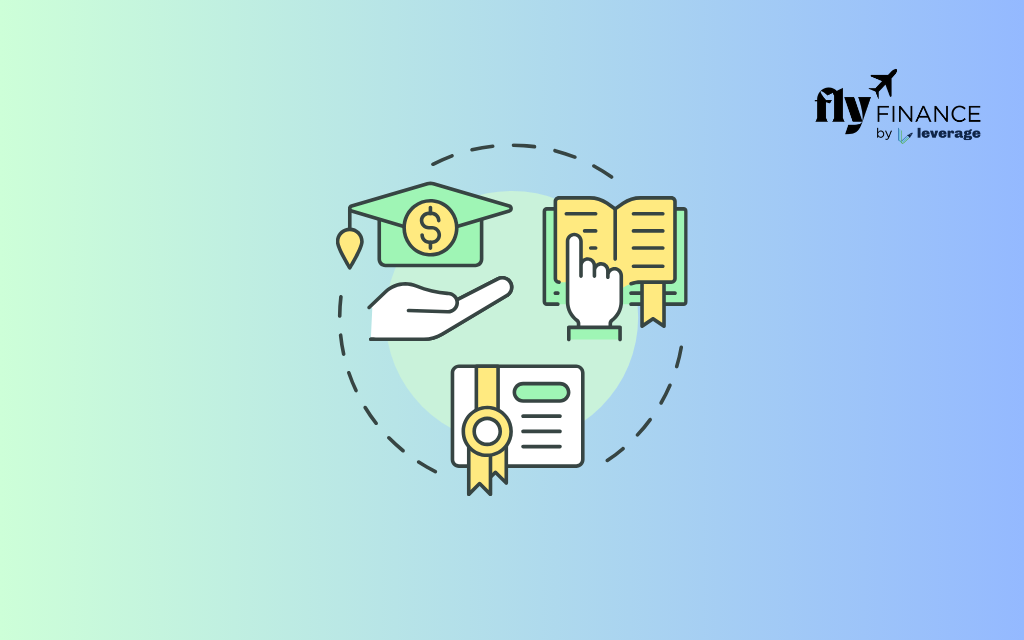Education loans are secured loans provided by banks or any other financial institution to students who want to pursue higher education abroad or in India. Most of the banks offer secured education loans of the amount up to INR 1.5 crores based on the requirement of the student.
On the other hand, personal loans for education are mostly unsecured loans provided to students who want to pursue higher education. In a personal loan, you need to show a regular monthly income of a certain amount as stated by the lender. Let’s understand both the loans and know how they are different from each other.
Table of contents
Education Loan and Its Features
Education loans to study abroad are easily available these days. As per the guidelines prescribed by the Reserve Bank of India, the government banks provide education loans of up to INR 4 lakhs without collateral. Any education loan to study abroad above INR 4 lakhs will require collateral of the value as prescribed by the lending institution. Education loans in India for study abroad are available at affordable interest rates starting from as low as 8.5% per annum. You can get education loans on both fixed and floating rates of interest.
- Easy applications can be made for education loans through the Vidya Lakshmi portal. You can apply directly from the bank as well
- Most of the banks offer education loans of an amount up to INR 1.5 crores
- In an education loan, you will get a moratorium period of course duration + 1 year or 6 months after getting a job.
- Simple interest will be charged during the moratorium period.
- Most banks provide flexible repayment periods of up to 15 years.
Also Read: Check all about HDFC Bank Personal Loan for Education and find out a best-suited offer for you
Personal Loan for Education and Its Features
A personal loan for education is an unsecured loan provided to students who want to pursue higher education abroad or in India. You can get a personal loan easily through online mode for your studies. A lot of banks even provide a top-up education loan on personal loan as per your requirement. The interest rate for a personal loan usually starts from 11% subject to the terms and conditions provided by the lender.
- No collateral is required for a personal loan for any amount.
- Some banks may demand collateral if you are asking for an amount more than your eligibility.
- Banks may not allow any moratorium period for a personal loan.
- You must have a monthly income of an amount prescribed by the bank or lending institution. If you are not in a job, you can show the income of your parent/co-applicant. However, it is up to the bank/lender whether they consider the income of the parent or not.
- You don’t need a co-applicant if you are in a job and earning a sufficient amount as prescribed by the lending institution.
Also Read: Looking for a quick and easy education loan at the lowest interest rate? Click here to apply for the cheapest education loan with Fly Finance Loans to Study Abroad
Difference between Education Loan and Personal Loan
| Education Loan | Personal Loan |
| Collateral is required for loans above INR 4 lakhs (may vary depending on the lender) | No collateral is required |
| Long repayment period of up to 15 years | Shorter repayment period (12 to 72 months) |
| Lower interest rate | High-interest rate |
| A large number of banks/financial institution | A limited number of lenders |
| Moratorium period of course period + 1 year or 6 months after getting a job | No moratorium is allowed |
| Co-applicant/parent is essential | Co-applicant is not required if you have a regular monthly income |
| You can get up to INR 1.5 crores under the education loan scheme | Maximum amount is below INR 1 crore (mostly 50-60 lakhs) |
| The minimum age for an education loan is 16 years | The minimum age for personal loans for education is 18 years |
Important Guidelines
While applying for a loan to pursue higher education, always compare the lenders on various parameters such as interest rate, repayment period, requirement of collateral etc. Most of the banks demand collateral for education loans while private banks and NBFCs may approve loans without collateral up to a certain amount. Check some major guidelines below:
- If you want a higher loan amount at a lower rate of interest, choose education loan schemes provided by government banks
- Personal loans for education are not as flexible as the amount is limited and interest rates can be comparatively higher.
- If you are taking a loan for the undergraduate program then try to get an education loan instead of a personal loan as it will not allow you to avail any moratorium period.
- If you are taking a loan for a course with a shorter duration and you are already earning regular income, then a personal loan for education is a better option.
- Most of the banks allow a maximum age limit of 35 years while personal loans for education can be taken with a maximum age of up to 80 years (including the repayment term)
FAQs
One of the major differences between education loans and personal loans is that personal loans are unsecured loans i.e. it doesn’t require any collateral while education loan above INR 4 lakhs requires collateral.
There are a lot of banks with dedicated education loan schemes for study abroad. Some of the most preferred banks are the State Bank of India (Global Ed-vantage Loans), Bank of Baroda (Baroda Scholar Loan), Punjab National Bank (PNB Udaan Loan) etc.
Some of the best banks for personal loans for education are IDFC First Bank, IndusInd Bank, HDFC Bank etc. Bajaj Finserv, a leading NBFC in India, is also a good option if you want to take a personal loan of a large amount for your education.
Most banks and NBFCs approve personal loans if your CIBIL score is 685 or above. A low credit score may result in the rejection of a loan. If any lender agrees to provide a loan with a low CIBIL score, they will charge very high interest and a shorter repayment period.
Usually, banks approve education loans to students with a maximum age of 35 years. However, you can simply take a personal loan for education from banks or NBFCs that allow a maximum age limit of up to 80 years (including the repayment period).
Educational loans and personal differ a lot on certain grounds like moratorium, interest rate, maximum loan amount etc. Do proper research and understand your requirements before applying for an education loan or a personal loan for education.
To know more about the loan application process, the best international bank accounts for students, forex and banking experience for global students or international money transfers, reach out to our experts at 1800572126 to help ease your study abroad experience.
Follow Us on Social Media





























